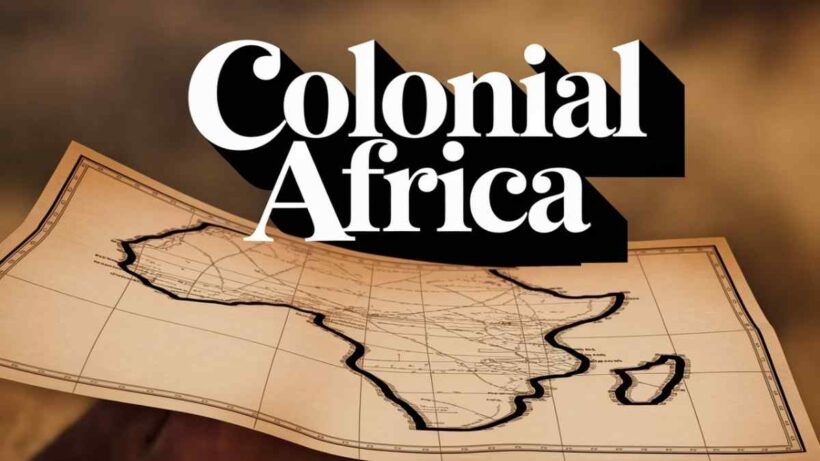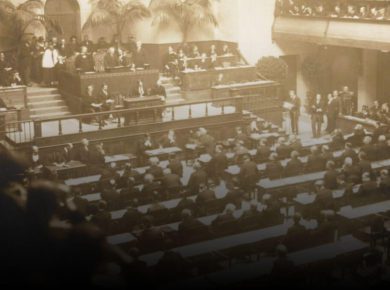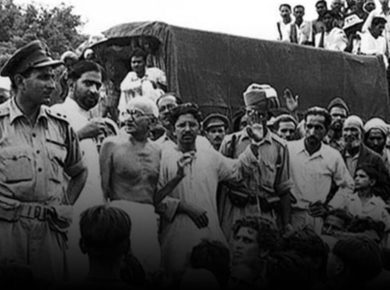Colonialism in Africa (19th century)
Difficult terrains, non-navigable rivers & other such geographical features ensured that colonialism had a late entry in mainland Africa and was restricted for a long time to Coastal Africa.
- 19th century – publications of the expeditions made by individual explorers raised the interest among Europeans.
- They were able to chart the courses of important rivers → Navigability in mainland → European companies and troops could now reach into the interiors and transport out the mineral wealth to the coasts for further export.
King Leopold II of Belgium patronized the explorers and was the first to establish a colony in central Africa. In 1876, he brought Congo under his control and managed it as his private colony.
By 1914 whole Africa was scrambled among Britain, Belgium, France, Germany, Italy & Portugal, except for Abyssinia (where the Italians were defeated by the nationalists – Battle of Adowa), and Liberia.
There were many squabbles among the European powers for territory and trading rights in Africa. The overlapping claims of European colonists led to Berlin Conference, in 1884-85, to resolve disputes regarding West & Central Africa, which resulted in demarcation of spheres of influence of each colonial power in Africa. Niger & Congo rivers was made free for ships of all signatory nations.
Egypt was of special interest to the British due to Suez Canal, which provided for a shorter sea-route to its Asian colonies, especially India. Suez Canal was managed by a company with shareholding of France and the Governor of Egypt. In 19th century, Egypt was under financial stress, and it had to sell its shareholding to the British in 1875.
In 1876, Egypt failed to pay the instalments of the loan it had taken from Britain and France. The two European powers setup a Council for management of budget of the Egyptian government and thus brought Egypt under economic control.
The high taxes and the delay in payment of salaries to the Egyptian Army led to a revolt in 1882. It was however, crushed by the British troops and Egypt was brought under British control.
In 1904, France recognized British rights over Egypt and Sudan in exchange for recognition of its rights over Morocco. In 1922, Egypt was given independence, but Britain continued to control the Suez Canal.
Impact of Colonialism on Africa
- White settlers became elites and exploited the Black natives
- Slavery
- Mass killings by colonial powers
- Policy of Divide and Rule created problems after independence
- Extreme neglect of Education and Health
- Economic development hurt
The European settlers, like the Boers in South Africa, became wealthy and powerful in Africa. They controlled the government and denied Africans any political right. In almost every colony, the lands of Africans were taken away for cultivation and mining by settlers with Blacks working as slaves. The Race thesis was institutionally deployed to deprive Africans of their rights during Apartheid in South Africa and Zimbabwe.
Many Africans were killed by the European military while resisting the loss of their lands, slavery, & unfavourable treaties offered by the Europeans. Whole villages were destroyed if inhabitants refused to agree to the demands of the Colonists.
Belgium Congo probably witnessed the first Genocide of the modern era. From 1876 to 1908, nearly 10 million Africans were massacred in Belgian Congo by the administration of Belgian King Leopold II.
Scramble for Africa divided Africa into colonies with arbitrary boundaries, which did not follow the logic of geographical continuity or cultural unity. This resulted in colonies having multiple tribes, with very different cultures. They did not see themselves as part of one nation. Further, colonists used the policy of divide & rule.
They patronized one tribe at expense of the others. The favoured tribesmen were provided with arms and money and were used to coerce the other tribes into submission. This resulted in mutual hostility among tribal groups.
After independence the country witnessed constant tribal violence. In 1994, this process culminated in the worst genocide in recent history as the Hutu tribesmen massacred millions of Tutsi tribe members. The lack of national unity still haunts many African nations and it has been very difficult to ensure functional democracy.
The gross enrolment ratio at levels of primary, secondary and higher education was very low at time the African nations became independent with extreme illiteracy & poverty. Also, there were no Africans at officer level posts in the Army.
This resulted in inefficient governance after independence and caused the consequent collapse of democratic regimes. The elected governments failed to deliver on the huge developmental goals & became dependent on the developed world for aid, which brought Neo colonialism to the African nations.
Health sector was also subjected to great neglect. Colonies suffered from epidemics regularly given the humid conditions due to an Equatorial climate. HIV-AIDS today is most prevalent in Africa & Africa is the biggest intervention area for WHO and NGOs.
Above factors prevented economic development, and indigenous entrepreneurship, in any significant form. Africans did not get the market price for mineral resources, which were exported out of Africa. Colonists ensured that no indigenous industry develops & Africa remains an exporter of raw material and importer of finished goods manufactured in European factories.













1 comment
thankyou very much to share the knowledge.